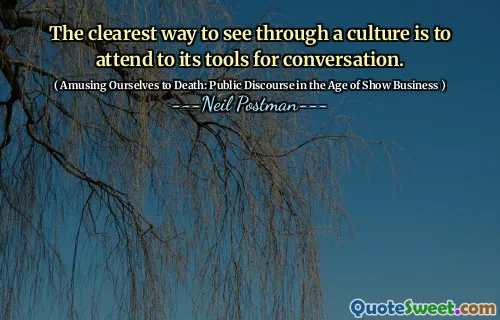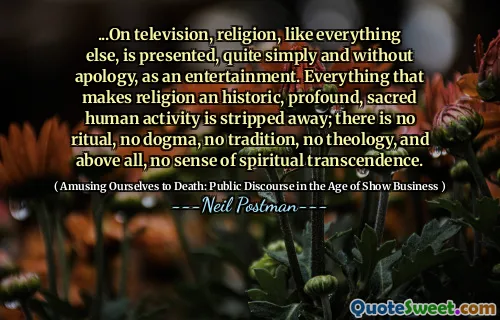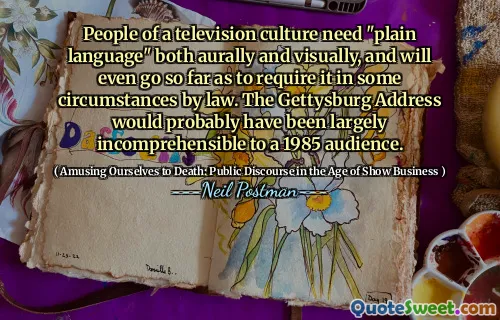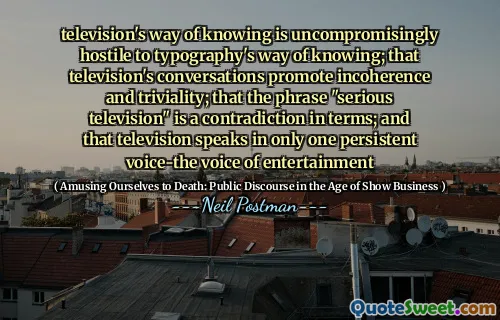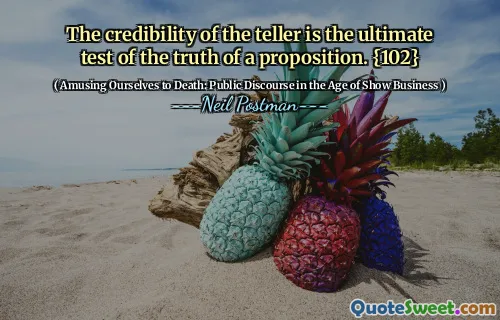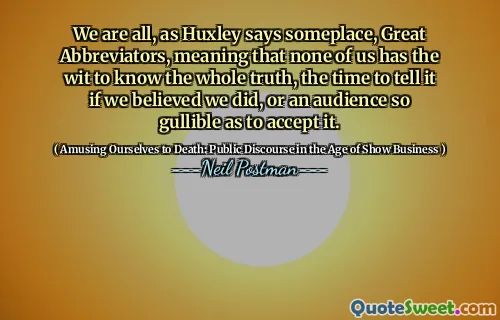
What Orwell feared were those who would ban books. What Huxley feared was that there would be no reason to ban a book, for there would be no one who wanted to read one. Orwell feared those who would deprive us of information. Huxley feared those who would give us so much that we would be reduced to passivity and egoism. Orwell feared that the truth would be concealed from us. Huxley feared the truth would be drowned in a sea of irrelevance.
In Neil Postman's "Amusing Ourselves to Death," he contrasts the fears of George Orwell and Aldous Huxley regarding the future of society and information. Orwell warned against authoritarian regimes that would restrict access to knowledge by banning books, thus controlling thought and truth. His concern was rooted in the dangers of censorship and the suppression of dissent. In contrast, Huxley envisioned a world in which the abundance of information would lead to widespread apathy, where people would lose interest in meaningful engagement with literature or ideas, rendering the act of censorship irrelevant.
Postman highlights that Orwell's nightmare of truth being concealed is matched by Huxley's fear of drowning in triviality. With an overwhelming amount of content available, individuals may become desensitized and disengaged, unable to discern meaningful truths from superficial distractions. Therefore, the juxtaposition of these two perspectives reveals a critical examination of contemporary culture, underscoring the importance of both access to information and the cultivation of genuine interest in intellectual pursuits.
